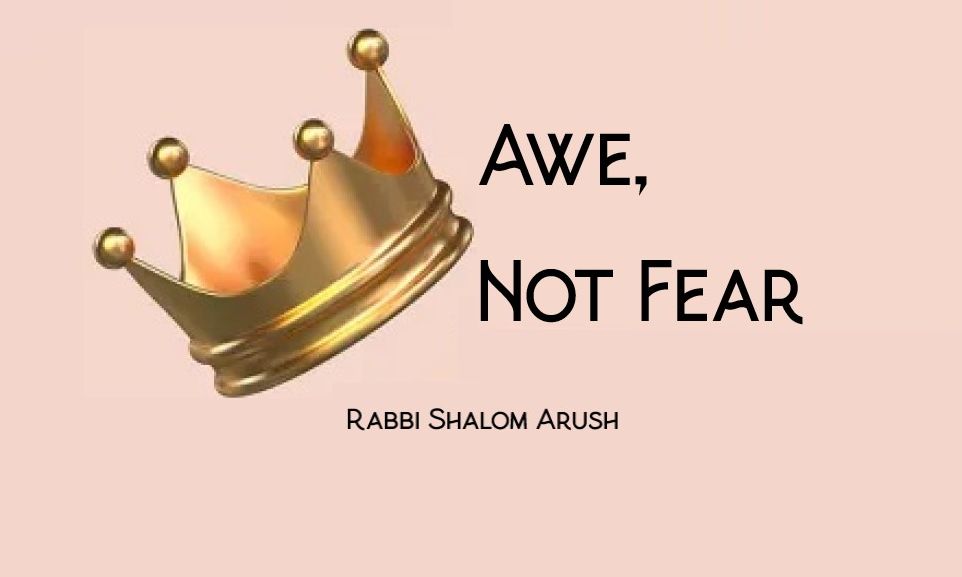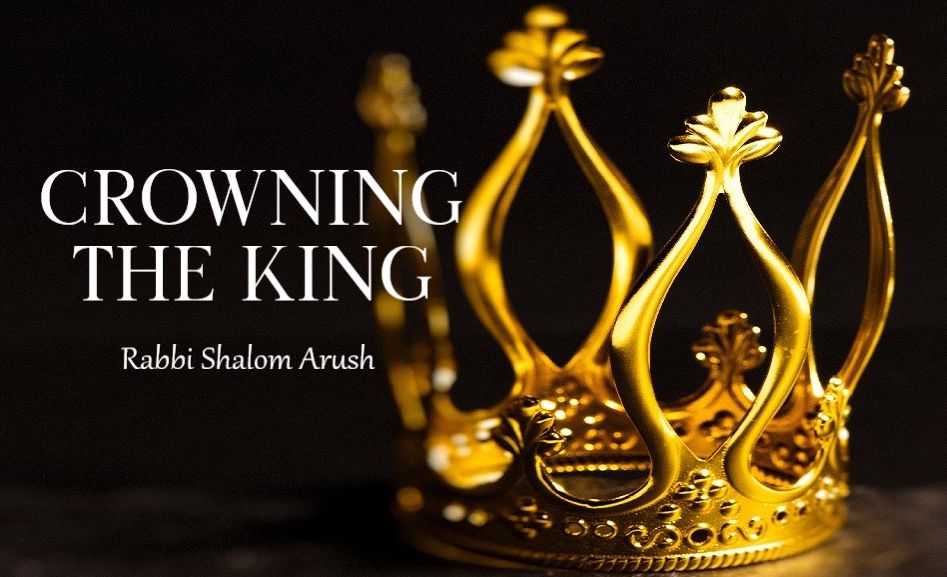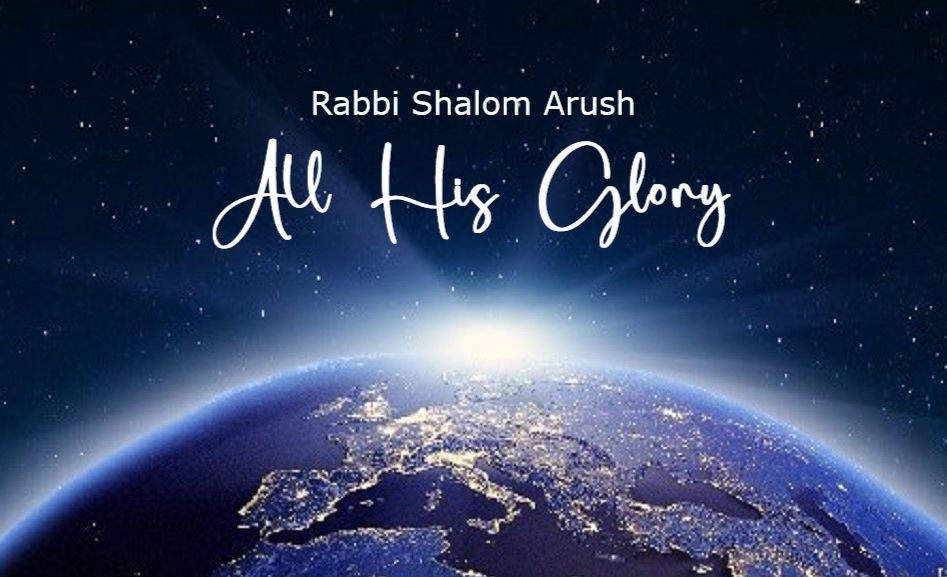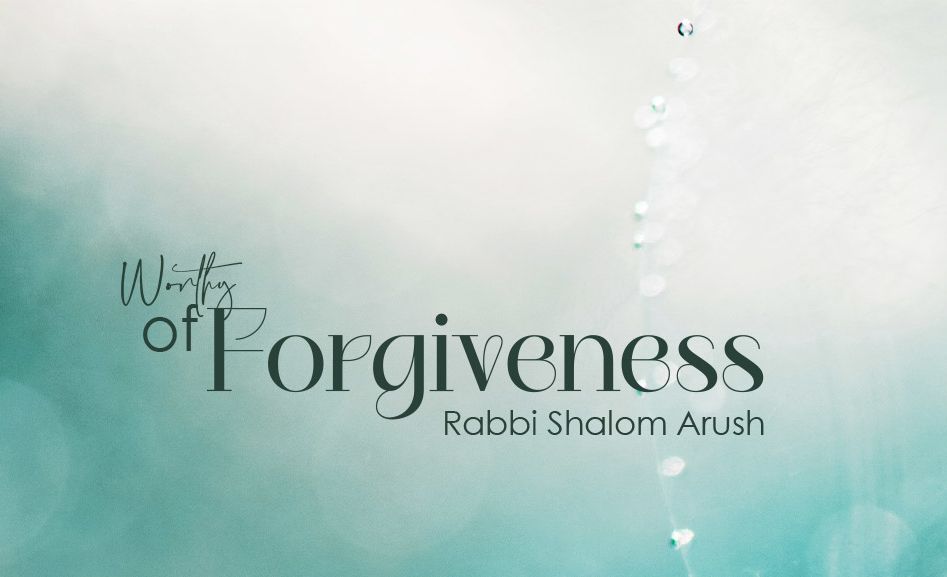
Awe, not Fear
People equate "romance" with "love", but there are greater expressions of love than physical gestures. Forgiveness is probably the greatest expression of love...

Part 2 of “Crowning The King”
The more a person has awe of the King, the more admirable, for awe shows that he or she knows The King. People misunderstand the concept of yirat Shamayim; they translate it as “fear of G-d” but it’s really “awe of G-d.” Pachad in Hebrew is fear, but yirah is really awe. Some people are paralyzed with fear during the High Holidays, especially before Yom Kippur. But, they shouldn’t be. Yom Kippur – a national day of atonement and forgiveness, is one of the greatest gifts Hashem could bestow on us.
There are Ten Days of Repentance between Rosh Hashanah and Yom Kippur. Hashem is so magnificently merciful that even if a person failed to do teshuva during the month of Elul or on Rosh Hashanah, and even if he or she was slapped with a severe judgment of Rosh Hashanah, Hashem will still gladly and lovingly  open His arms to our teshuva efforts made in the days between Rosh Hashanah and Yom Kippur. Where in the world is the flesh-and-blood tribunal that is so compassionate? What human court would pay the slightest attention to a person’s remorse after a stern verdict was handed down? But Hashem is not a human ruler – He is The all-merciful King! This is what Rebbe Nachman is referring to when he declares, “There is no despair, anywhere!” The Yetzer Hara – the evil inclination – tells you don’t bother: have a good time and the heck with the future. Such is the philosophy of the cheap-thrill generation; if it was such a winning philosophy, why are so many people depressed out of their skulls? Think about it…
open His arms to our teshuva efforts made in the days between Rosh Hashanah and Yom Kippur. Where in the world is the flesh-and-blood tribunal that is so compassionate? What human court would pay the slightest attention to a person’s remorse after a stern verdict was handed down? But Hashem is not a human ruler – He is The all-merciful King! This is what Rebbe Nachman is referring to when he declares, “There is no despair, anywhere!” The Yetzer Hara – the evil inclination – tells you don’t bother: have a good time and the heck with the future. Such is the philosophy of the cheap-thrill generation; if it was such a winning philosophy, why are so many people depressed out of their skulls? Think about it…
Prior to Yom Kippur, one can certainly do Teshuva that’s sufficient to sweeten the most severe judgments. The gates of Heaven are wide open to sincere teshuva and a candid desire to mend our ways. That’s why the Gemara in tractate Taanit tells us that the two best days in Judaism are the 15th of Av and Yom Kippur.
Hey, wait a minute – the 15th of Av is “Love Day”, a joyous day of romance that’s opportune for matchmaking and weddings! What does that have to do with Yom Kippur?
People equate “romance” with “love”, but there are greater expressions of love than physical gestures. Forgiveness is probably the greatest expression of love there is. On Yom Kippur – as long as we do our best effort in making sincere teshuva – our beloved Father in Heaven forgives us of the worst imaginable transgressions! That’s like your bank manager canceling a million-dollar debt that you owe with a snap of his fingers! What could be a greater expression of Love? On Yom Kippur, we can pray with true joy for we have a right to be happy. This is the happiest day in the Jewish calendar.
Rebbe Nachman says that Yom Kippur gives us a sensitive heart so that we can feel Hashem. Once we feel Hashem in our lives, our days become full and meaningful. Rebbe Natan writes that the forty days between Rosh Chodesh Elul and Yom Kippur correspond to the forty days that the meraglim, the spies, toured the Land of Israel and ultimately swayed the Children of Israel’s hearts against Hashem, against Moses, and against the Land of Israel. Because of the sin of the spies and their forty-day botched reconnaissance mission that weakened the emuna of Israel, our people were sentenced to forty years of wandering in the desert. The “Shem M’Shmuel”, the holy Sukachover Rebbe of saintly and blessed memory, says that the root of the sin of the spies was our people’s dependence on their own logic and their lack of faith in Hashem and in Moses, in other words, a lack of emuna in the leaders of the generation and in the Oral Torah. This sin is the root of every sin for posterity. As such, when we use the forty days between Rosh Chodesh Elul and Yom Kippur to strengthen our emuna and to get close to Hashem, we effectually uproot the sin of the spies. So we see that crowning Hashem and making Him sovereign over us is also the key to our sovereignty today over the land of Israel. It’s easy to understand – once again, by applying the rationale of measure for measure – that as long as we fail to make Hashem Sovereign over us, then we’ll encounter continued difficulties in trying to assert our sovereignty over the Land of Israel.
Back in the time of the spies, our people were punished for forty years because of the spies’ forty-day sin. But Hashem is ever so compassionate; with emuna and teshuva during these forty days, we can correct all the sins of the last 3300-plus years, all the way back to the sin of the spies.
To be continued









Tell us what you think!
Thank you for your comment!
It will be published after approval by the Editor.